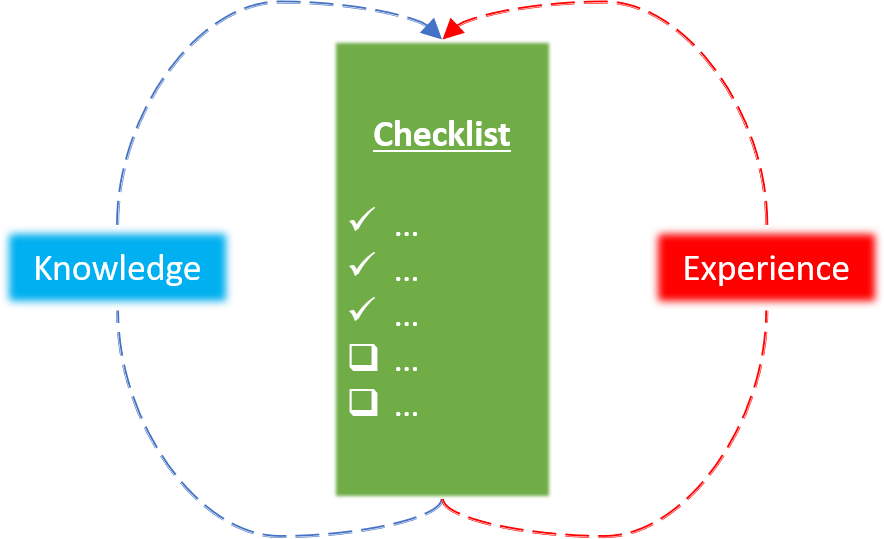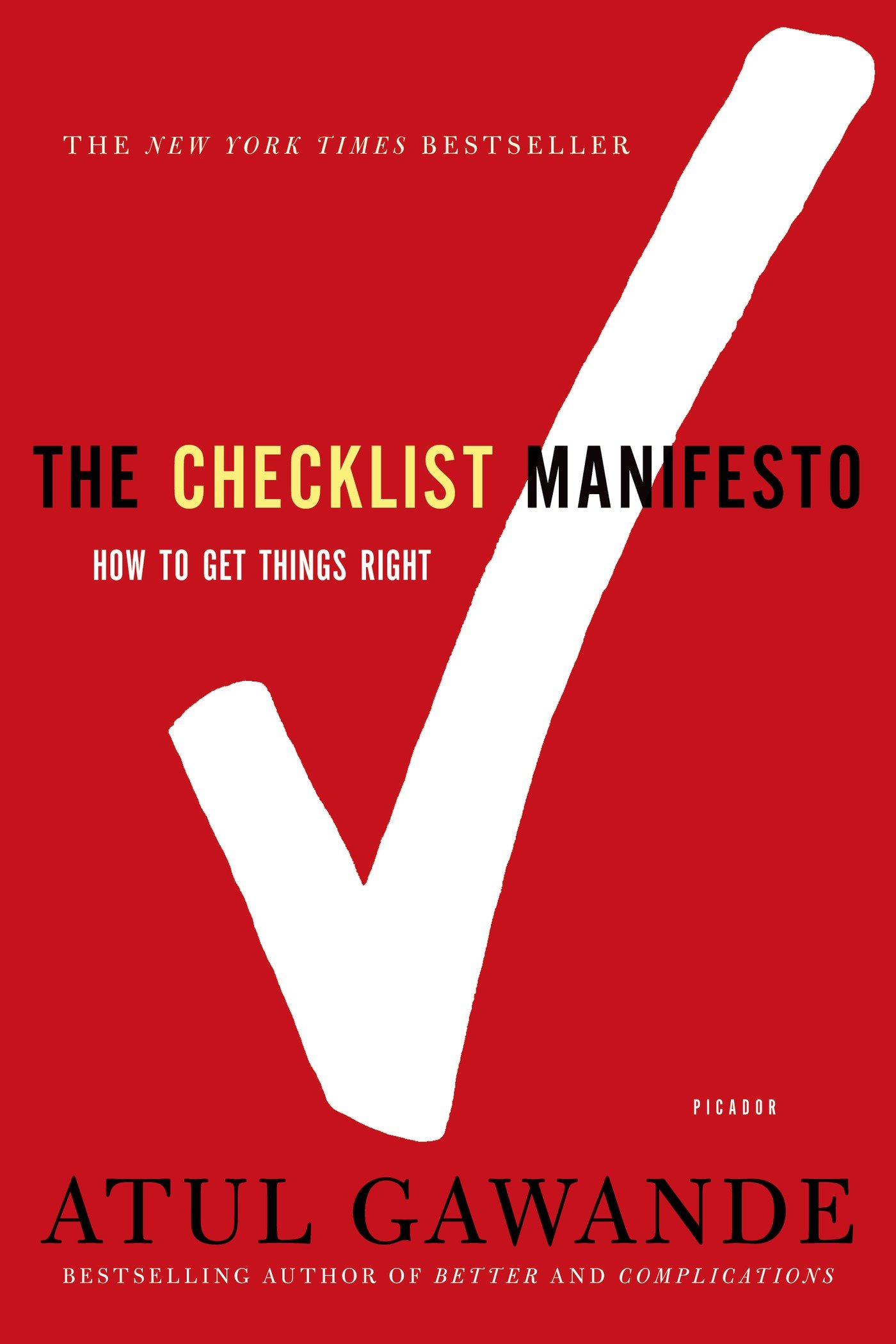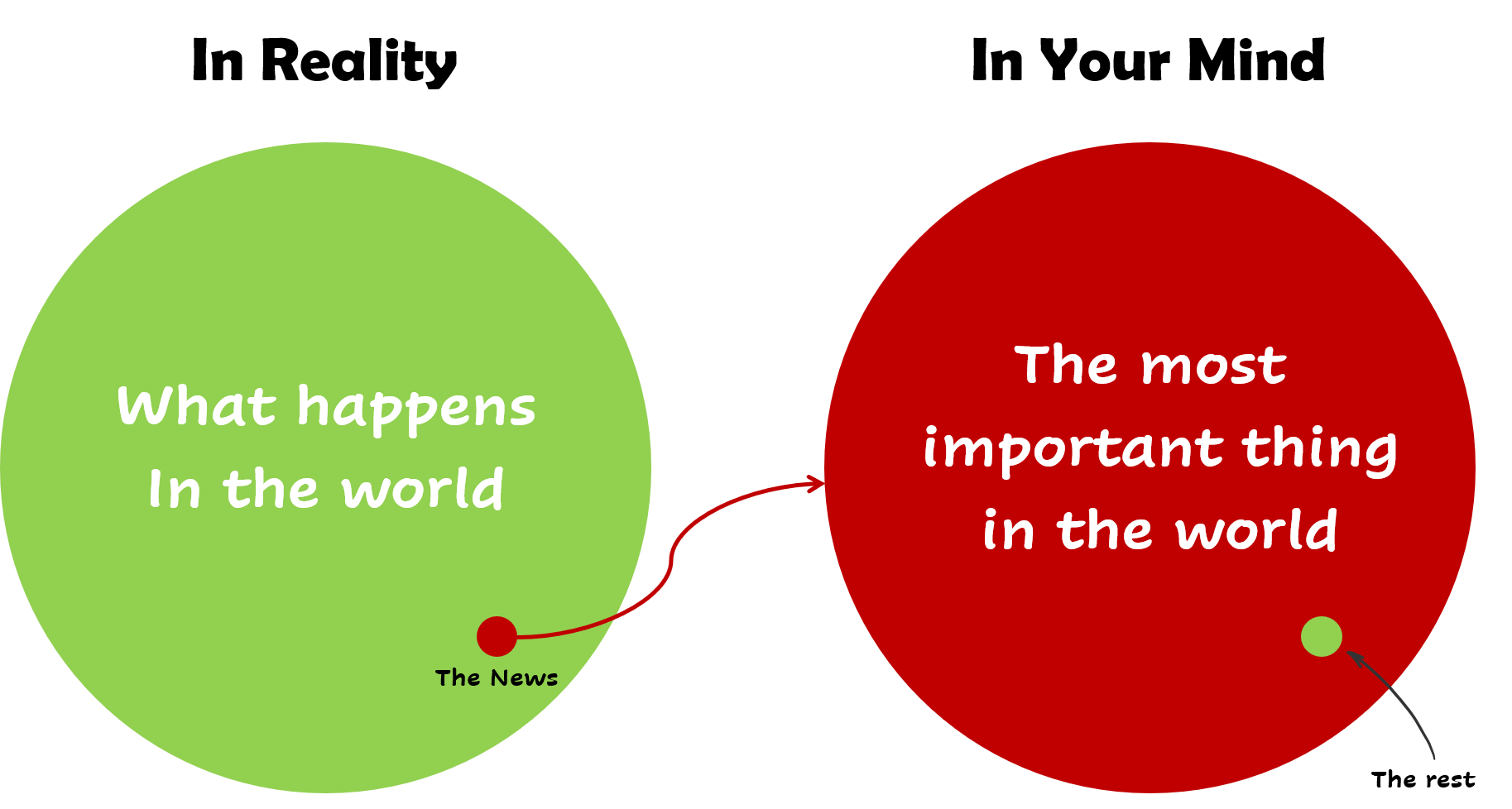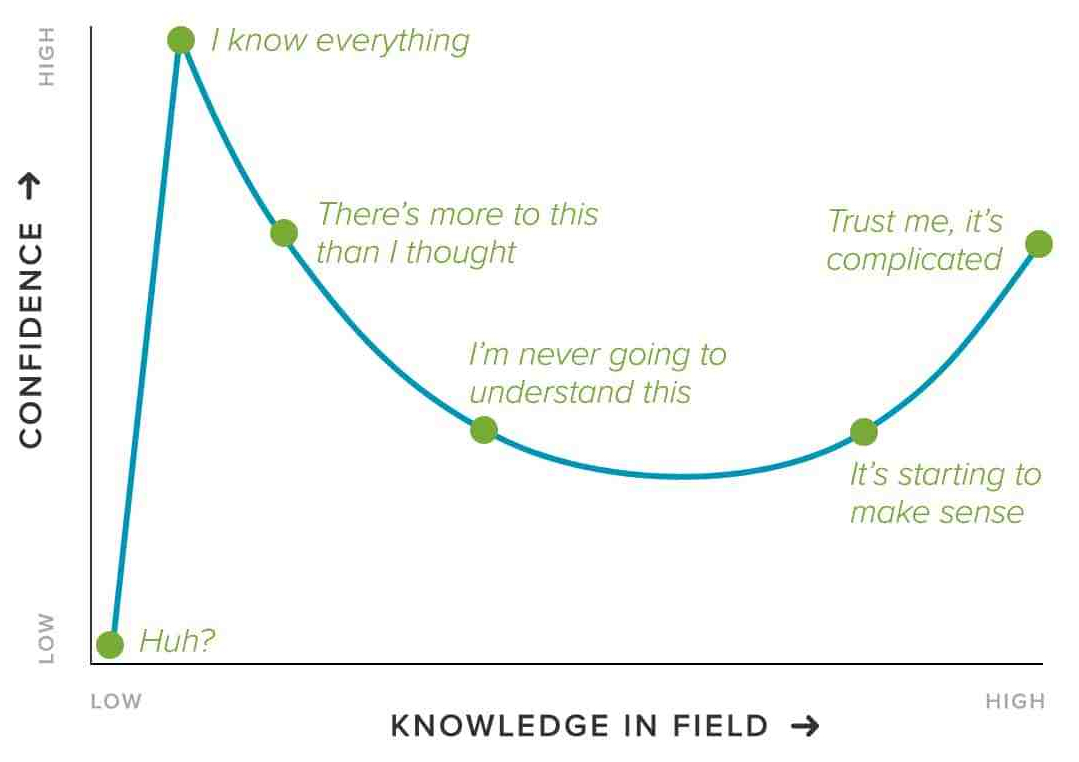Checklists are a simple, powerful, yet often ignored, business tool. They provide a reliable and quick shortcut that improves our performance in the task at hand with less mental effort. Whether flying a plane, operating a surgery, troubleshooting a system, or making big decisions, checklists are always useful.
This post gives the reasons why checklists are paramount in some situations and emphasizes their importance in the process of decision-making.
What is a Checklist?
A checklist is a pre-defined standard operating procedure to follow when performing a specific task. It is a proven business tool that improves performance and minimizes human errors and mental effort.
How to build Checklists?
Both knowledge and experience contribute to checklist definition, in a closed feedback-loop fashion, where the checklist definition contributes to the knowledge and experience too.

Checklists are useful for frequent routines, which reduces the cognitive effort needed to perform them. Nevertheless, we can use them in any other task, profession or industry.
Why do we need Checklists?
 Simply put, we need to use checklists to perform some tasks because we cannot be sure we have considered all the details of the task at hand. Our brains have blind spots. Sometimes, we overlook even the most basic fact of the problem, which may lead in some circumstances to catastrophic results. In a hospital, for example, a nurse may treat the wrong patient if the name is not verified. Worse, a surgeon may operate the wrong patient! Yes, it happened and may happen again even for the highest skilled nurse and surgeon.
Simply put, we need to use checklists to perform some tasks because we cannot be sure we have considered all the details of the task at hand. Our brains have blind spots. Sometimes, we overlook even the most basic fact of the problem, which may lead in some circumstances to catastrophic results. In a hospital, for example, a nurse may treat the wrong patient if the name is not verified. Worse, a surgeon may operate the wrong patient! Yes, it happened and may happen again even for the highest skilled nurse and surgeon.
Here are some reasons why we are often unable to consider all the facets of the problem at hand:
- We simply forget: as human beings, we are prone to forgetting. This is why we often write things down in the form of to-do lists and checklists.
- Complexity: as human knowledge and technology grow in complexity, so does our professional tasks (finance, software design, hardware design, etc.). The memory alone does not help.
- Limited attention: pay attention to something, and you’re almost sure you are missing something else. It is a scientific fact that our conscious mind can handle only one object at a time, and leaves rest for the unconscious autopilot. That is why we may forget the pizza in the oven if we engage in an interesting discussion. This is also the principal cause of car accidents, medical errors, etc.
- Expertise: an increasing number of professions require super-specialized experts. A domain expert is prone to both complexity and overconfidence and may overlook basic facts.
- Cognitive biases: our cognitive biases, such as the confirmation bias, the planning fallacy, the availability heuristic, etc. are the major cause of errors.
Continue reading “Checklists: where the Disciplined Outperforms the Genius.” →




 Simply put, we need to use checklists to perform some tasks because we cannot be sure we have considered all the details of the task at hand. Our brains have blind spots. Sometimes, we overlook even the most basic fact of the problem, which may lead in some circumstances to catastrophic results. In a hospital, for example, a nurse may treat the wrong patient if the name is not verified. Worse, a surgeon may operate the wrong patient! Yes, it happened and may happen again even for the highest skilled nurse and surgeon.
Simply put, we need to use checklists to perform some tasks because we cannot be sure we have considered all the details of the task at hand. Our brains have blind spots. Sometimes, we overlook even the most basic fact of the problem, which may lead in some circumstances to catastrophic results. In a hospital, for example, a nurse may treat the wrong patient if the name is not verified. Worse, a surgeon may operate the wrong patient! Yes, it happened and may happen again even for the highest skilled nurse and surgeon.



 Title:
Title: 